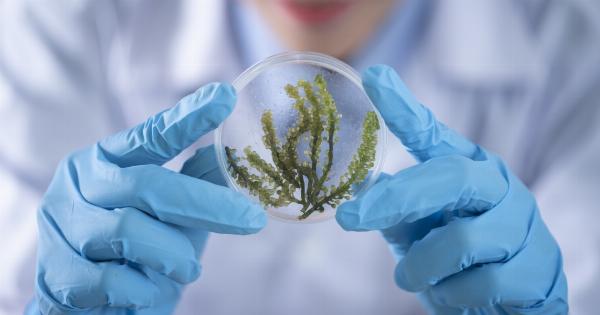Menopause is a natural biological process that occurs in women usually between the ages of 45 and 55, marking the end of their reproductive years.
It is a significant life transition that brings about hormonal changes and various symptoms, including hot flashes. Hot flashes, also known as vasomotor symptoms, are sudden feelings of intense heat that may be accompanied by rapid heartbeat, sweating, and flushed skin. While hot flashes are a common symptom of menopause, they should not be ignored.
In this article, we will explore why menopause hot flashes shouldn’t be ignored and their potential implications on women’s health.
The Physical and Emotional Impact of Hot Flashes
Hot flashes can have a profound effect on a woman’s physical and emotional well-being. The sudden waves of heat can be highly disruptive, causing discomfort and embarrassment in various situations.
Sleep disturbances are particularly common, as hot flashes often occur at night, leading to night sweats and interrupted sleep patterns. As a result, many women experience fatigue, irritability, difficulty concentrating, and even mood swings.
Menopause and Cardiovascular Health
Research suggests that there may be a link between hot flashes and cardiovascular health. Studies have shown that women who experience hot flashes during menopause may be at higher risk of cardiovascular diseases such as heart disease and stroke.
The exact mechanisms underlying this association are still being studied, but it is believed that the hormonal changes and fluctuations in estrogen levels during menopause play a role.
Osteoporosis and Hot Flashes
Osteoporosis, a condition characterized by weakened and brittle bones, is a significant concern for women as they age. Estrogen, which decreases during menopause, plays a crucial role in maintaining bone density.
Hot flashes have also been linked to a higher risk of developing osteoporosis. Women who experience hot flashes frequently or for a prolonged duration may have an increased likelihood of developing this condition. Therefore, addressing hot flashes during menopause can have a positive impact on bone health.
Quality of Life and Hot Flashes
Hot flashes can significantly impact a woman’s overall quality of life.
The frequency and severity of hot flashes can vary from person to person, but when they are persistent and disruptive, they can interfere with daily activities, social interactions, and overall well-being. Seeking treatment and finding ways to manage hot flashes can greatly improve a woman’s quality of life during this transitional phase.
Managing Hot Flashes
While hot flashes are a natural part of menopause, there are several strategies that can help manage and reduce their frequency and intensity.
Lifestyle modifications such as avoiding triggers like spicy foods, caffeine, and alcohol, maintaining a cool sleep environment, and dressing in layers can provide relief. Additionally, techniques like deep breathing exercises, yoga, and meditation may help alleviate stress and minimize the occurrence of hot flashes.
Hormone Replacement Therapy (HRT)
Hormone Replacement Therapy (HRT) is a treatment option that involves supplementing the body with hormones, typically estrogen and progesterone. HRT can effectively alleviate menopause symptoms, including hot flashes.
However, it is essential to discuss the potential risks and benefits of HRT with a healthcare provider, as it may not be suitable for everyone. Regular check-ups and monitoring are necessary when undergoing HRT.
Alternative Treatments for Hot Flashes
In addition to HRT, there are various alternative treatments that may provide relief from hot flashes.
These include herbal supplements like black cohosh, evening primrose oil, and red clover, which have been traditionally used to alleviate menopause symptoms. However, it is important to note that the effectiveness of these treatments varies, and some may interact with other medications or have side effects. Consulting with a healthcare professional is advisable to determine the most appropriate option.
When to Seek Medical Attention
While hot flashes are generally considered a normal part of menopause, there are instances where medical attention may be necessary.
If hot flashes are severely affecting your quality of life, persist for an extended period, or are accompanied by other concerning symptoms, it is crucial to consult a healthcare professional. They can evaluate your specific situation, rule out any underlying conditions, and provide guidance on the best course of treatment.
The Importance of Addressing Menopause Symptoms
Menopause is a significant life transition that brings about various physical and emotional changes. While hot flashes may be one of the most well-known symptoms, other symptoms such as vaginal dryness, mood swings, and memory lapses can also occur.
Addressing these symptoms and seeking appropriate treatment options can greatly improve a woman’s overall well-being during and after menopause.
Conclusion
Menopause hot flashes are not merely a temporary inconvenience; they can have long-term implications for a woman’s health and quality of life.
From their potential impact on cardiovascular health and bone density to their disruptive effect on sleep and emotional well-being, hot flashes should not be ignored. Seeking treatment, whether through lifestyle modifications, hormone replacement therapy, or alternative treatments, can provide much-needed relief and improve a woman’s experience of menopause.
It is crucial to consult with healthcare professionals to understand individual needs and make informed decisions regarding the management of menopause symptoms.





























